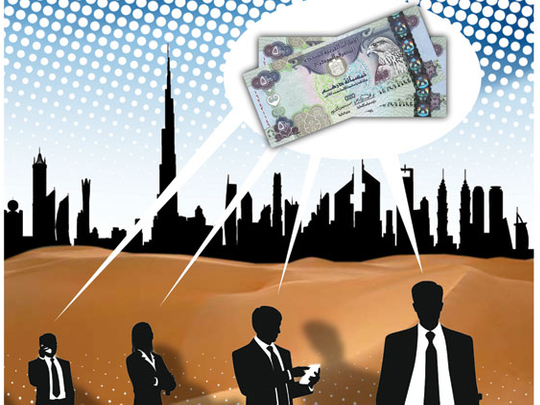
It’s been six years since Dubai, along with almost every other major market, experienced the worst recession to have hit capital markets since the Great Depression. In the aftermath, economies have shrunk, unemployment risen, debt ratios ballooned, consumer confidence shattered and real estate prices plummeted.
Throughout this mess, most economies have been scrambling to restore market order with little success. A notable exception is the UAE in general and Dubai in particular. Since the beginning of 2010, and after a contraction of 4.3 per cent in real terms in 2009, Dubai’s economy has been steadily growing at an annualised rate of 3.8 per cent, fuelled primarily by a robust real estate market, which represents roughly 13 per cent of the emirate’s GDP.
During the same period, unemployment in the emirate has fallen, consumer confidence surpassed pre-crisis levels, Expo 2020 secured, credit growth accelerated, bank asset quality improved and real estate price growth outperformed its global peers for four consecutive quarters ending March this year.
The 2008 real estate crash seems like a distant past today with developers launching or relaunching projects more than $50 billion (DH184 billion) worth of these have been announced since the beginning of 2013 — banks extending credit to finance construction projects (construction loans are up 40 per cent in December 2013 compared to a year earlier), transaction volumes reaching new levels, and investors racing to form line-ups the moment a new project is launched.
The Dubai real estate landscape has changed but unfortunately investor behaviour hasn’t. There’s so much the regulator or responsible developer can do to protect investor interests and curb unfounded speculations, but if herd mentality continues to persist and investors ignore the fundamentals and buy properties solely based on random recommendations or celebrity endorsements, they will eventually suffer the same fate as their pre-crisis predecessors.
Those investors/speculators are artificially driving prices up and keeping genuine investors on the sidelines. Many genuine investors today are forced to rent because they simply believe that prices have shot up rapidly that a minor correction is inevitable.
Although I agree that the speed and duration of real estate price ascension have been worrisome, I personally believe that market fundamentals are strong enough to maintain the momentum, albeit at a slower pace, and that a correction under the current circumstances is unlikely.
I believe the recent real estate crash was a necessary evil. It helped weed out second-tier developers that applied unsustainable margins to flood the market with lower quality, overpriced properties. Fortunately, these developers were the first to disappear as they couldn’t withstand the new market conditions.
This paved the way for top-tier developers to reclaim their territories and offer high quality projects. Those developers are often well-capitalised with healthy balance-sheets, have access to capital and managed by a strong team of professionals that apply the highest standards of corporate governance.
Some of these developers have reimposed restrictions on property resale — sometimes up to 40 per cent of off-plan property value must be paid before the property can be sold — to discourage short term investors from overnight “flipping” and artificially inflating prices.
Resale restrictions imposed by developers are nothing new since these restrictions were selectively applied before the crisis. What’s new this time is the regulator’s active involvement in protecting investors’ interests.
Recently, and after months of deliberation, the UAE Central Bank announced a new set of mortgage restrictions that limit the term and amount of loan individuals can obtain to purchase property. The limits vary depending on one’s salary, value of the property, number of properties owned, and whether the buyer is a local or an expat.
To complement the central bank’s move, Dubai Land Department also recently announced that property registration fees would double from 2 per cent to 4 per cent which “will limit unhealthy transactions which are harming the market”, according to Sultan Bin Mejren, Director-General of DLD. These measures are intended to reinforce sustainable market fundamentals and revive investor interest.
Dubai today offers plenty of attractive opportunities for astute investors who are willing to go the extra mile to prudently and objectively evaluate their investments and conduct proper due diligence. On a relative basis, Dubai remains undervalued when compared to major cities. According to Knight Frank, $1 million dollars buy you 146 square metres of prime property in Dubai whereas the same area will set you back $3.5 million in Paris and a whopping $5.8 million in London.
Genuine investors in Dubai are not merely interested in buying a property, they’re buying a lifestyle. In a region riddled with constant geopolitical tensions, Dubai is without a doubt the most liveable city in the Middle East offering security, high standards of living, unparalleled retail experience and a wide variety of entertainment options unavailable anywhere else in the region.
The writer is Managing Director of Asset Management at Emirates Investment Bank.












